How God Uses Story Villains for Our Good
All three of my daughters developed catchphrases early in their lives, and each phrase has come to define their personalities.
When my oldest daughter was three, she said, “I like to organize,” and took it upon herself to re-order the sugar packets at a restaurant table. Now she’s in her teens, lives by her planner, and loves fashion and decorating.
My middle daughter once quipped, “I like to get messy.” Now she’s a pre-teen and loves to get her hands dirty with cooking, coding, and all manner of science experiments.
As for my youngest daughter’s life motto? “I like the bad guys.”
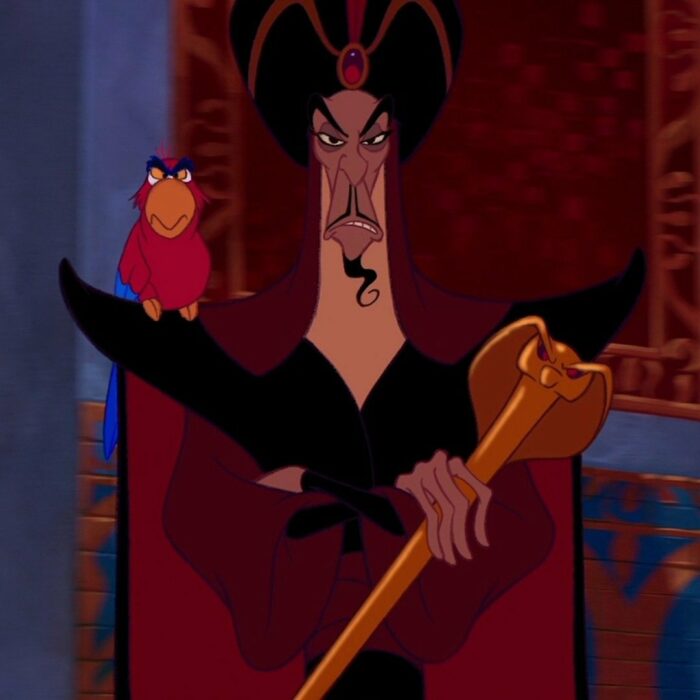 Why my daughter is a superfan of villains
Why my daughter is a superfan of villains
When we took my daughter to see Mary Poppins in live theater, she was fascinated by Nanny Andrews, the titular character’s evil counterpart. Then we saw The Little Mermaid and my daughter focused on Ursula. With Aladdin, she loved Jafar. One night as our kids argued over what movie to watch, my daughter was convinced to watch Star Wars, because “it has bad guys in it!” She’s not sure how she feels about Cruella de Vil, however, because she loves dogs so much.
Naomi and I have questioned why our little girl has such a fascination. No, we’re not (usually) worried she will try to take over the world. But she says she loves bad guys because “they have powers.” Indeed, villains become evil because of their unashamed propensity to use force—whether mystical or material—to achieve their goals. And as I’ve previously explored, we may feel drawn to villains because of their overindulgence in “freedom.” They serve as a form of wish fulfillment.
You yourself might have several reasons for feeling affinity toward a certain bad guy. My personal favorite recently is Queen Watevra Wa-Nabi from The LEGO Movie 2. To be fair, she’s been fact-checked as “the least evil queen in history.” And she totally won’t imprison your family.
On a basic level, villains run the show and provide contrast to the hero. Stories can’t exist without them, and the worse the bad guy, the greater the triumph of the good guy. Beyond this truth, story villains reveal God’s good purpose for our lives.
Villains show us a better understanding of sin itself
One of the most loving actions God does is to show us our sin. Otherwise, sin would destroy us. After Jesus’s ascension, He sent the Holy Spirit to “convict the world about sin, righteousness, and judgment” (John 16:8, CSB). God gave this conviction personally to Cain, warning him: “Sin is crouching at the door. Its desire is for you, but you must rule over it” (Genesis 4:7). Unfortunately Cain didn’t listen, and we know the rest of his story. Sin ended one life and ruined another.
Many people have so resisted this prompting that God, as an act of judgment, “delivered them over in the desires of their hearts” (Romans 1:24). He withdraws his warnings and allows people to experience the full measure of a life apart from him. But even then, God would rather “they turn from their ways and live” (Ezekiel 18:23) rather than die in their sin. For he “wants all people to be saved and to come to a knowledge of the truth” (1 Timothy 2:4).
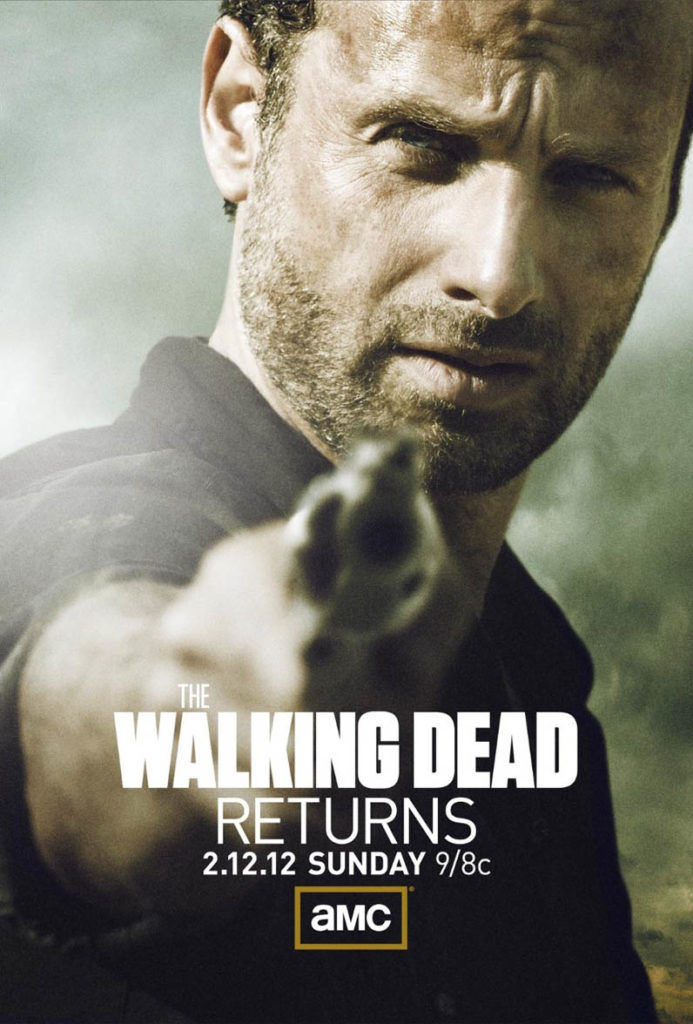 Story villains show us pictures of people who have completely turned away from God’s ways and whom God may have delivered over to their own evil plans. This clear portrayal of a life apart from God is crucial. Too often, sin blinds us and lulls us into complacency. Villains, therefore, are a gracious reminder of the pervasiveness and destructiveness of sin.
Story villains show us pictures of people who have completely turned away from God’s ways and whom God may have delivered over to their own evil plans. This clear portrayal of a life apart from God is crucial. Too often, sin blinds us and lulls us into complacency. Villains, therefore, are a gracious reminder of the pervasiveness and destructiveness of sin.
The Bible itself employs fictional characters to portray the lives of bad guys. In Nathan’s story to King David, a wicked rich man steals the only ewe lamb from a poor man to give as a gift to a traveler (2 Samuel 12). In Proverbs 7, a cunning woman seduces a foolish young man, leading to his death. Proverbs 9 portrays wisdom and folly themselves as powerful but very different women.1
These crucial texts help us stay aware of how sin operates. Jesus said to “watch out” and “be on guard” (Luke 12:15). Story villains help us clearly and memorably understand the forces of evil. In different ways, these villains operate to show us how sin breaks down our doors. Morgan L. Busse considers these sin-operations in three categories: “The Good, The Bad, and The Ugly,” referring to villains who are charming, diabolical, or simply nightmarish. We also see clear examples of each in The Walking Dead: The Governor, Neegan, and the walkers, respectively. These three types are helpful to keep in mind because sin attacks us all differently.
Villains are mirrors to our own souls
Another one of my favorite villains is General Zod from Man of Steel. Zod held noble goals and understandable grievances. All he wanted was to be the hero Krypton desperately needed. Of course, his only opposition was all the people he’d have to murder by genocide. For Zod, this was a small price to pay for a big, important project like terraforming the Earth and repopulating it with Kryptonians.
Zod is an excellent example of the “good” or charming villain. This kind is always saying to himself, “The ends justify the means.” Every time I watch Man of Steel, Zod’s speeches never cease to terrify me, because they almost persuade me. I feel myself agreeing with him. After all, Zod just wants the greater good—by any means necessary. As Travis Perry points out, “One of the worst things you can do is to try to seize power for the supposed purpose of obtaining a good goal.”
Zod’s downward spiral reflects the road to hell with its paving stones of good intentions. This journey always starts with small decisions. Similarly, in season 1 of the TV series 24, Jack Bauer explains:
“You can look the other way once, and it’s no big deal, except it makes it easier for you to compromise the next time, and pretty soon that’s all you’re doing: compromising, because that’s the way you think things are done. You know those guys I busted? You think they were the bad guys? Because they weren’t, they weren’t bad guys, they were just like you and me. Except they compromised. . . . Once.”
These examples are chilling because we know too well how little sins add up into big sins. All the no big deals and I won’t do it agains we tell ourselves don’t actually defeat the darkness within.
Therefore, we must look at story villains differently. They can’t simply be stand-ins for people or politicians we don’t like. We have to see them as reflections of the parts of our soul we would rather remain hidden. The problem is when “we think everyone else is the problem,” to quote Marian Jacobs.
However, we must also guard against over-empathizing with bad guys so much that we lose sight of the very definitions of good and evil. It’s easy for us to simply look for the bad guy’s honorable side and conclude he’s not all that bad. If we do, we can end up losing sight of evil itself, thinking that maybe it doesn’t even exist.
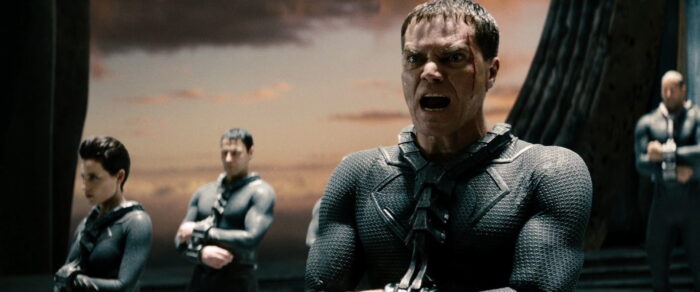
“I will find him!” —General Zod (Michael Shannon) from Man of Steel (2013)
Exposed villainy leads us to repentance
Recently I engaged in a small group discussion about the age-old question: in light of suffering and evil in the world, is God good? How do we reconcile God’s positive attributes we learn from Scripture with the injustice and depravity we see in the world? In other words, what does Jesus himself have to say about villains?
Jesus gave us an answer, but likely not one we want to hear or that we find sensible. His answer for us: repent. In Luke 13:1–5 we read:
At that time, some people came and reported to him about the Galileans whose blood Pilate had mixed with their sacrifices. And he responded to them, “Do you think that these Galileans were more sinful than all the other Galileans because they suffered these things? No, I tell you; but unless you repent, you will all perish as well. Or those eighteen that the tower in Siloam fell on and killed—do you think they were more sinful than all the other people who live in Jerusalem? No, I tell you; but unless you repent, you will all perish as well.”
Jesus confronted two situations that often trouble us: random tragedy and purposeful evil. Back then, some people believed a theory that still exists in many forms today: that people who die in such horrible ways basically deserved it, and they were being punished for some secret sins. After all, this is much easier to believe than an explanation like, “Bad things happen to good people but we don’t know why.”
But Jesus didn’t entertain either of those ideas. Nor did he give a speech about why Pilate was the worst leader of all time. Instead, he cut straight to the heart of his audience by addressing their own inner villains: “Unless you repent, you will all perish.”
You see, the tragedies that understandably troubled these people also shone God’s bright spotlight into their world. As John Piper writes in Coronavirus and the Christ: “God put the physical world under a curse so that the physical horrors we see around us in diseases and calamities would become a vivid picture of how horrible sin is. … Physical pain is God’s trumpet blast to tell us that something is dreadfully wrong in the world.”
It’s easy to look at villains and think, “I could never do that.” But it’s more rewarding when we wonder, “How am I like this person?” For example, fans of Marvel’s Black Panther enjoy repeating, “Wakanda forever!” and imagine being King T’Challa. But it’s also illuminating to consider, “Why do I sympathize with Killmonger?”
Of course, we should want to imitate the hero of every story. Heroism is a virtue, no matter what deconstructionists say. But heroes should turn our eyes toward Jesus, seeing him as the one true Hero. We ourselves are rebels against his kingdom, who were nonetheless redeemed by his grace. One hundred percent of all crimes were committed by fellow, fallen humans. “So, whoever thinks he stands must be careful not to fall” (1 Corinthians 10:12).
Story villains are therefore God’s tremendous gift to open our eyes to sin’s reality, keep us aware of how sin has infected us, and help us turn to Christ for a way out. We need to ask God which villains we are most alike, just as David prays, “Search me, God, and know my heart; test me and know my concerns. See if there is any offensive way in me” (Psalm 139:23–24).
Which villains truly scare you—not because of how evil they are, but because they make you think, “but for the grace of God, there go I”? What has God shown you about your own life through these villains’ stories?
- Side note: Proverbs 9:17 is my favorite out of context verse when I try and sneak a piece of candy without my kids realizing it, because “food eaten in secret is delicious!” ↩

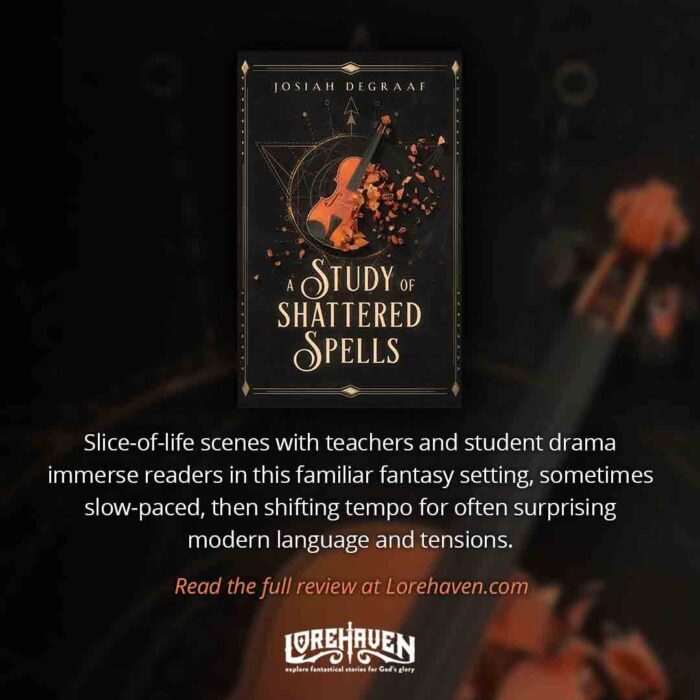



























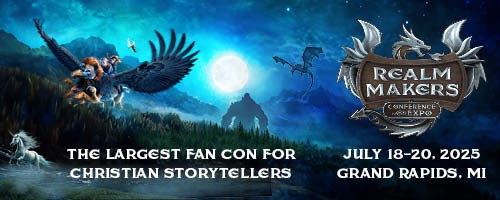
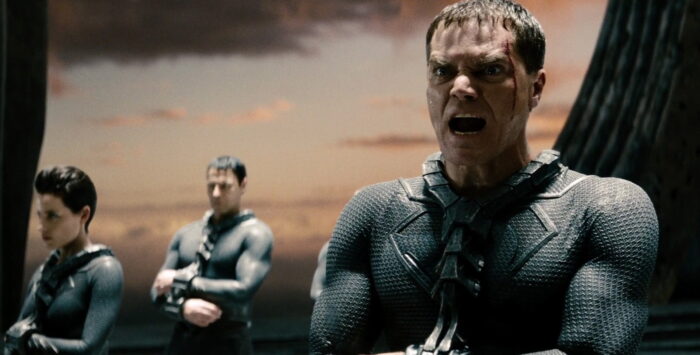


I love Thanos as a villain because he’s so different from other pop culture villains, but I find myself almost agreeing with him when I watch Infinity War
My youngest son was also obsessed with villains from an early age, despite being a thoughtful, kind-hearted and empathetic kid. I think the youngest child in the family tends to feel small and powerless and is easily teased or taken advantage of by their older siblings, so they’re drawn to characters who are powerful, scary and seemingly untouchable. My youngest is still mad at Eowyn for killing the Witch-King of Angmar, his second-favorite character in LotR (#1: Sauron. #3: The Balrog.)
I’m a lot like your youngest in that I’m typically more interested in the bad guy. I used to think it was simply that they were better written, more interesting and complex. While my friends loved Peter Pan, I was cheering for Captain Hook. I could relate to him more than Pan.
‘Unhinged’ was a movie where I was on the fence. While I felt for the woman and her kid, at the same time I understood what the Russell Crowe’s character was going through and…on a really bad day, if I didn’t keep myself in check, how far could I be pushed to Crowe’s side?
We just watched ‘The Next Three Days’, Crowe’s character plans to break his innocent (or maybe guilty) wife out of prison because he feels the system failed her. At the end, I’m hoping he succeeds, but yet I realize he’s breaking so many laws as well as commandments. And then I start asking myself, what would I do? That’s a hard question to answer.